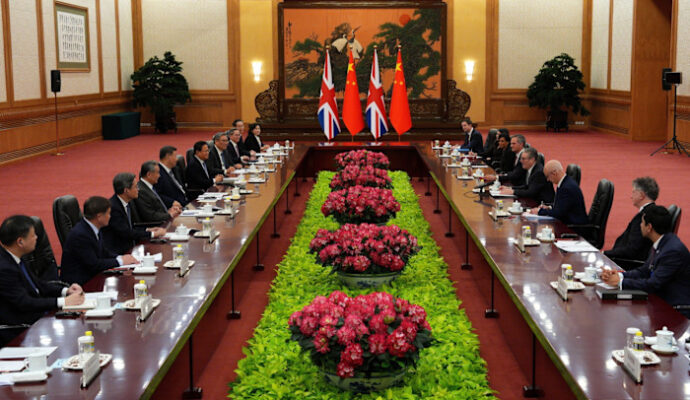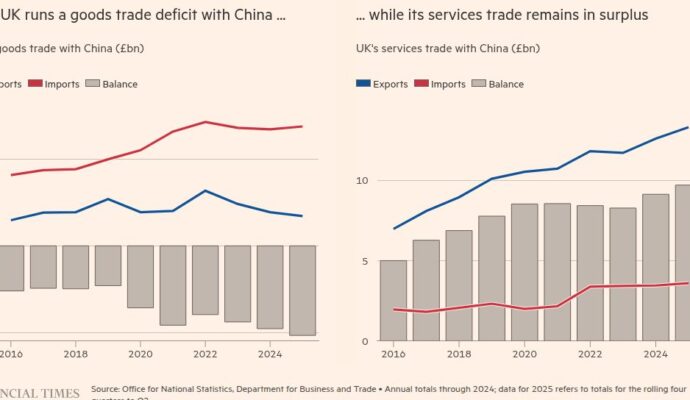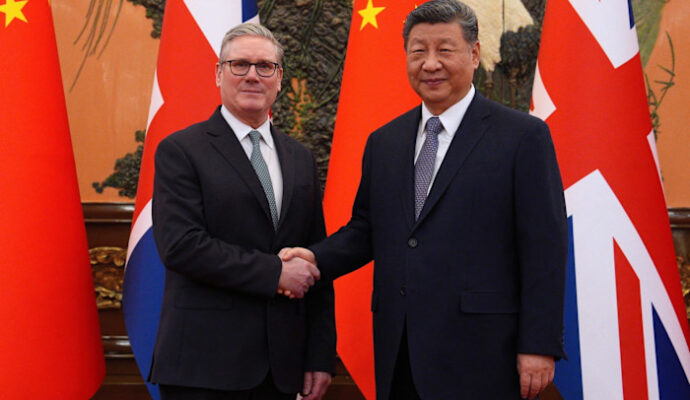Unlock the Editor’s Digest for free
Roula Khalaf, Editor of the FT, selects her favourite stories in this weekly newsletter.
Taiwan’s president on Sunday launched a drive for national unity in the face of aggression from China, in a move intended to overcome domestic partisan battles which is likely to further raise cross-strait tensions.
Lai Ching-te asserted Taiwan’s de facto independence in the first of 10 speeches planned for the coming weeks under the motto “Unite Taiwan”. He highlighted the centuries during which Taiwan was separate from China and said that because it had its own territory, people, government and sovereignty, “of course Taiwan is a sovereign state!”
A senior official in Lai’s ruling Democratic Progressive party said Lai’s push was meant for a domestic audience. It comes as the party campaigns to reclaim control of parliament through a July 26 vote to recall nearly half of the lawmakers of the largest opposition party, the Kuomintang.
But observers believe that Beijing could further step up its military threats in response to new high-profile rhetoric from Lai.
China claims Taiwan as part of its territory and threatens to attack it if Taipei refuses to submit under its control indefinitely. Over the past few years, Beijing has sharply stepped up military activity around the island, including almost daily manoeuvres in airspace and waters close to it and large-scale exercises simulating moves such as blockades, bombardments and an amphibious invasion.
Admiral Samuel Paparo, the commander of US forces in the Indo-Pacific, has called the moves “rehearsals” and warned such an exercise could become a “fig leaf” for a Chinese attack.
Since Lai took office in May last year, Beijing has further scaled up military manoeuvres, intensified espionage efforts and increased a global campaign to have other governments back its claims over Taiwan.
On Sunday, Lai pushed back hard against those moves. He walked his audience at a Rotary Club chapter through Taiwan’s history from prehistoric times, highlighting that the island’s indigenous population was Austronesian rather than Chinese and that it was outside of Chinese government control for most of its history.
Lai also stressed that while Japan, Taiwan’s colonial ruler for 50 years, ceded control in its 1945 peace treaty with second world war counterparts, sovereignty was not formally transferred to any other nation.
In the planned speeches he will promote his views on topics including nation, cross-Strait relations, democracy and peace.
Although Lai’s assertion that Taiwan is an independent sovereign country has been the DPP’s official position since 1999, Beijing has taken an even more hostile stance towards him than his predecessor, Tsai Ing-wen.
China’s Taiwan Affairs Office did not immediately respond to a request for comment.


